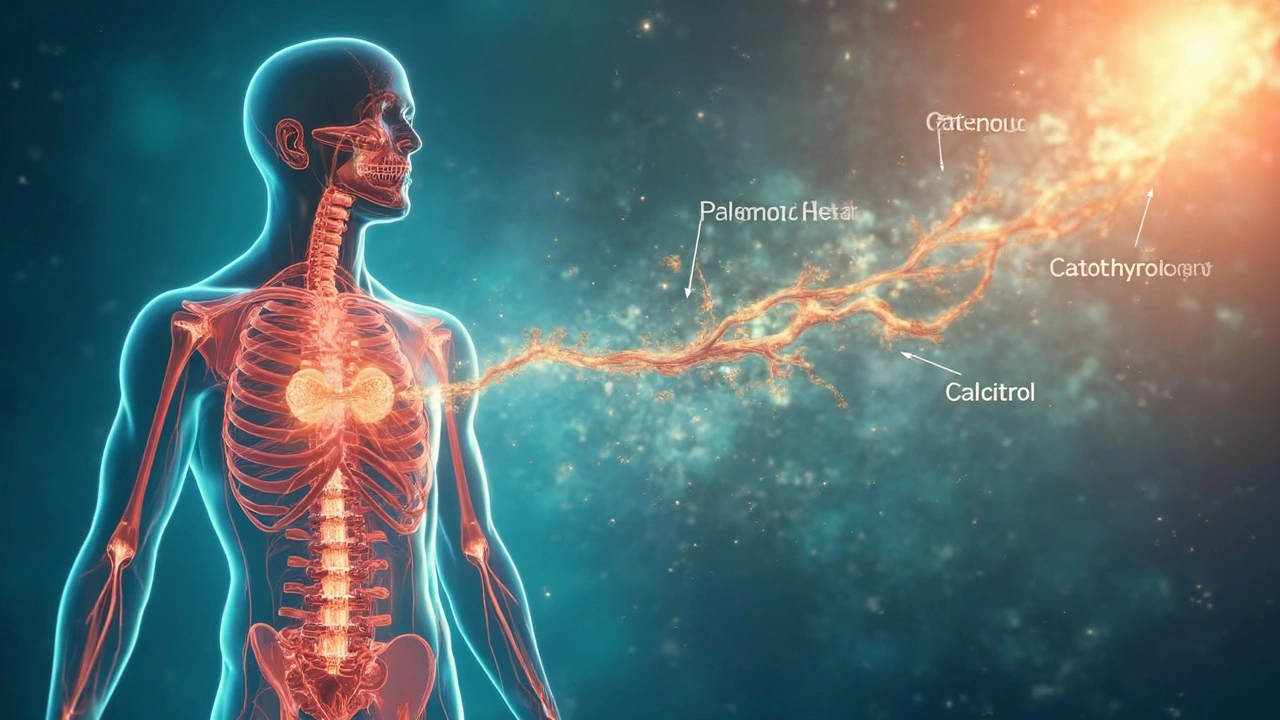Parathyroid Hormone (PTH): What It Is and Why It Matters
If you’ve ever heard doctors mention “PTH” and wondered what it is, you’re not alone. Parathyroid hormone is a tiny protein made by four tiny glands behind your thyroid. Its main job? Keeping the right amount of calcium in your blood and bones.
Why does calcium matter? Calcium powers everything from muscle contractions to nerve signals and keeps your bones strong. When calcium drops, PTH jumps into action, pulling calcium from bones, telling kidneys to hold onto more, and nudging your gut to absorb extra from food.
How PTH Regulates Calcium and Phosphorus
Think of PTH as a thermostat. When blood calcium falls, PTH turns the heater on. It signals bone‑breaking cells (osteoclasts) to release calcium, tells the kidneys to re‑absorb calcium instead of tossing it in urine, and reduces phosphate re‑absorption (phosphate is another mineral that rides along with calcium). The net effect: blood calcium goes up, phosphate goes down.
When calcium climbs too high, the parathyroid glands chill out and make less PTH. This feedback loop keeps levels steady, preventing both dangerous lows (which can cause muscle cramps) and spikes (which can damage kidneys).
Too Much or Too Little PTH: Symptoms and Treatment
When the thermostat breaks, you get either too much or too little hormone.
High PTH (hyperparathyroidism) often shows up as fatigue, bone pain, kidney stones, or tingling in the fingers. The most common cause is a non‑cancerous gland bump. Treatment may involve monitoring, medication that lowers calcium, or surgery to remove the overactive gland.
Low PTH (hypoparathyroidism) can cause muscle spasms, tingling, or seizures because calcium drops too low. It may happen after thyroid surgery or be inherited. Doctors usually give calcium supplements and active vitamin D to keep levels in range.
Both conditions need blood tests to measure PTH and calcium. A typical panel includes PTH, calcium, phosphorus, and vitamin D levels. If you’re getting tested, ask your doctor what each number means for you.
Living with an imbalanced PTH doesn’t have to be a nightmare. Simple steps help keep calcium steady: eat dairy or fortified plant milks, include leafy greens, stay active to strengthen bones, and avoid excessive salt or caffeine, which can leach calcium.
If you suspect a problem, schedule a check‑up. Early detection keeps your bones and kidneys happy, and most people manage PTH disorders well with the right mix of medicine, diet, and lifestyle tweaks.
